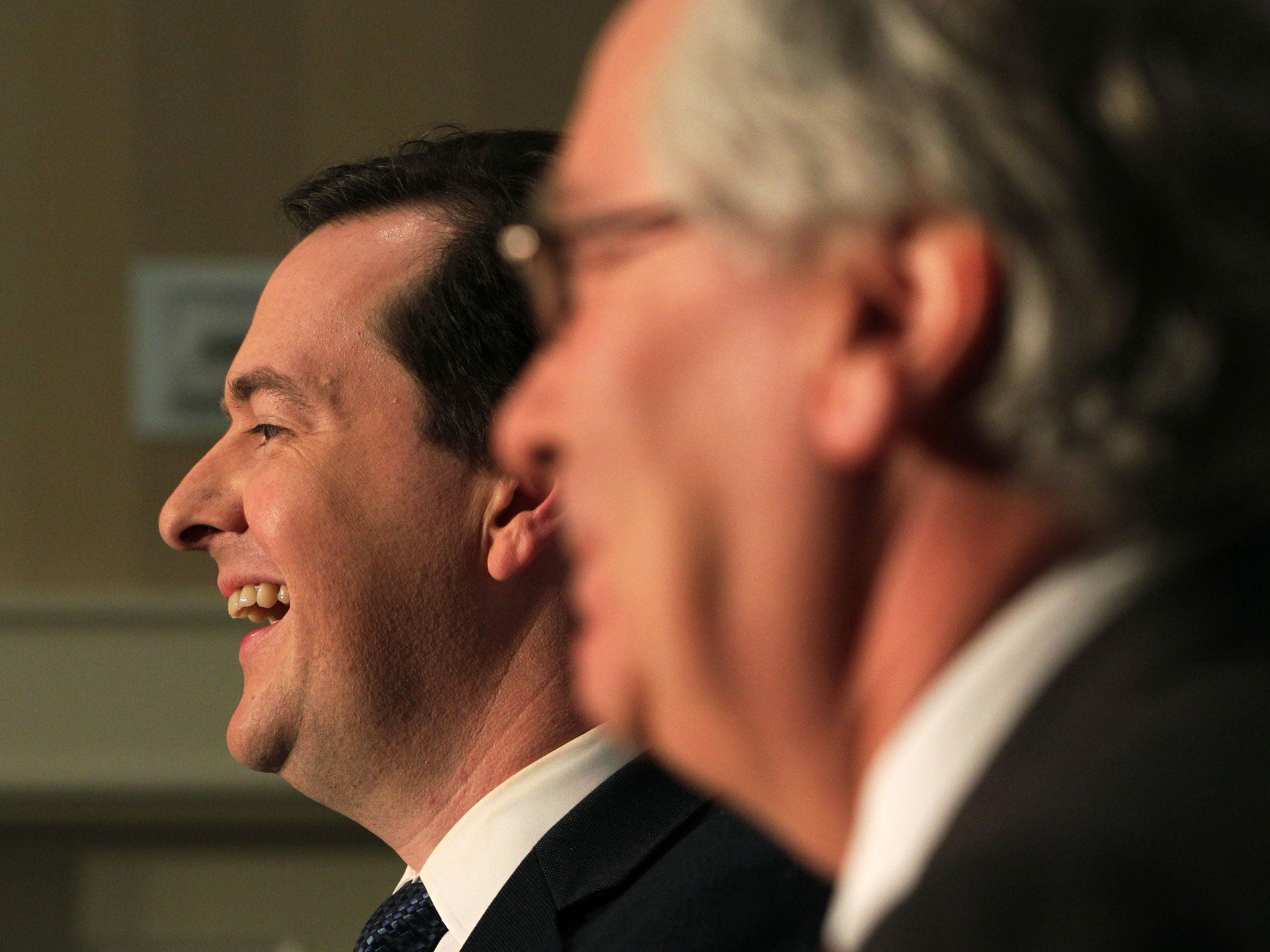Mervyn King's final economic forecast? It's four weddings and a funeral for Britain
After three years of disappointment in measures of economic performance, this quarterly Inflation Report means Mervyn King can end his tenure on a positive note


Today, at last, it looks as though the Bank of England will revise its growth forecasts up, not down. The quarterly Inflation Report will be the last under the present governor, Mervyn King, and so, after three years of disappointment on two of the three main measures of economic performance – growth and inflation – he will be able to end his tenure on a modestly positive note.
But it is only the most modest progress because, while on the third measure of performance – employment – the UK has recovered more strongly than from any post-war recession, the idea that growth this year of perhaps a little more than 1 per cent should be good news shows how miserable things have been.
There has, however, been a clear swing of mood. Shares are at their five-year high. The Royal Institute of Chartered Surveyors yesterday reported that housing demand was at its highest for nearly three years. The CBI is reasonably upbeat about business expectations. Car sales are very strong, up 15 per cent in April. And, of course, it looks as though the “double dip” in the economy will be revised away, as some of us said it would when those dire figures were first published.
So the big question now is how quickly we can make up at least some of the lost ground. What might come right and what might go wrong? I can see four potential positives and one negative: you might say four weddings and a funeral.
First of the potential “weddings” would be a decline in energy and commodity prices. The recovery of the West was held back by these, which were driven by strong demand from the rest of the world, notably China. As a result, we did not get the benefit we might have expected at that stage of the cycle. Now both energy and commodities seem to be easing back, reducing imported inflation. The UK has done rather worse than the US or Europe on inflation, partly because of the weak pound, partly because of a rise in “administered prices”, such as the rise in university fees, which are decided by the Government rather than being determined by market forces.
Second: a recovery in housing. There are two parts to this, a recovery in prices and a rise in activity. The former is a mixed blessing, for while the wealth effect helps underpin consumption, no-one wants unaffordable housing. A rise in activity from the exceptionally low levels of the past four years would be very helpful. Of course, it boosts construction but it also helps free up the labour market, and increases demand for consumer goods: you put in new kit when you move home.
Third, there is employment. This has been the great success story of the recovery, with faster job growth than any G7 country bar Germany. But it has to go on being the success story and most recent numbers were just a little soft. A slight pause in job creation would be understandable given the very strong growth but a fall back would be worrying. Creating more jobs is the main way we can dig our way out.
Fourth are exports. These have been disappointing and it is not clear whether this is mainly a Europe thing, for nearly half our merchandise exports still go to Europe, whether reorienting exports to new markets takes a long time, or whether we simply had too high expectations of the benefit that a cheaper sterling might bring. The general point here is that net trade has been a drag on the economy and at some stage that needs to be reversed.
And the potential funeral? It is that the present difficult economic situation across the eurozone will get worse, not better. A second year of recession is already in the forecasts. If that looked like becoming a third, that would be truly alarming. We simply don’t know what is going to happen. The eurozone economy as a whole may gradually ease its way up towards the end of this year, but parts of it will face a third year of decline.
But to return to the Inflation Report, it will be a relief if the outlook for the UK has improved rather than deteriorated. A bit of a change, and about time, too.
An important new study on wellbeing
People interested in economic well-being rather than the narrower concept of economic growth will be intrigued by a new study from the Office for National Statistics as to how the UK is doing.
The bad news first. We have fallen from number five in the world in 2005 to number 12 in 2011. There are a number of reasons, which include the devaluation of sterling and the fact that we have suffered relatively high inflation. The better news is that we have done well in maintaining employment, and the UK has remained fairly strong compared with other developed countries in terms of household spending and wealth.
But, for me, two things stand out from this study. One is that it is done in a particularly clear and “unspun” way. In fact, it is one of the clearest bits of macro-economic teaching that I think I have ever seen. The other is that its aim is to focus on something that really matters – our economic well-being – rather than GDP. So a warm welcome.
Join our commenting forum
Join thought-provoking conversations, follow other Independent readers and see their replies
Comments
Bookmark popover
Removed from bookmarks